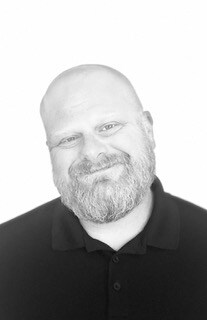Senior Consultant - Design Group Intl. * Co-Founder - The (POP) Fundraising Lab * My Digital Contact Card (Office EST) * My LinkTree * 14 April 2023 Free Virtual Workshop Registration
Faithful Friends,
When fundraising became a piece of my first job at a non-profit after undergrad, I struggled with how to think about it and become a healthy practitioner.
My immigrant grandmother would ask, “Kevin, when are you going to get a real job?” We were closest to this side of the family, and they shaped many of our values and behaviors. Since my work does not involve physical labor, I have often felt guilty about receiving pay for my work.
Questions started to form in my mind as a young fundraiser: How was I going to fundraise in Los Angeles? I did not know anyone! What would my middle-class midwestern friends and family think about needing to raise money for my job? How would the people in my church back home feel? What strategy would I employ to meet as many “rich” people as possible in a short amount of time?
As a result, I have had to face my family of origin’s attitudes around work and money, and investigate how those formed the mental models that I brought to the table as a fundraiser. Sound familiar?
As we grow up, we pick up values and beliefs about money, asking for help, what work looks like, tithing to church, giving, saving, etc. from our family. There are experiences, conversations, observations, and practices from our family of origin that have formed us in many ways. Noticing this and learning from these experiences helps us practice fundraising more faithfully.
Money and My Family of Origin Reflection
How has your family of origin influenced how you think about money? The following reflections may help you further explore these questions.
- Was talking about money a normal occurrence when you were growing up? How did it get talked about between people in your household?
- Was money a stressful subject or an interesting subject? How so?
- What are some bad memories you have regarding money or asking for help as a child?
- What are some good memories you have regarding money conversations or experiences as a child?
- Was making your needs known seen as a weakness or a strength in your family? How so?
- Do you feel comfortable talking about money with your family now that you are an adult?
- What do you need to let go of, lament, or celebrate from your family of origin’s perspective of money?
Common Mental Models of Fundraising
Instead of being someone who earned a living from the sweat of his brow, the work of being a fundraiser often led me to feel like a beggar as I raised funds. I thought that asking for help was a sign of weakness in my immigrant family.
“I should get a regular job.”
“I feel ashamed to asked for money.”
“I do not work hard enough to earn my money.”
“No one is interested in supporting our mission.”
These were the most common things that went through my head in my early years of fundraising.
Aspects of my family of origin were impacting how I thought about and formed mental models about fundraising. Some of these models were helpful. Others were not.
(A mental model is an explanation of a person’s thought process about how a certain thing works in the real world. In our context, our mental models have been, and continue to be, formed in us regarding how money works and how fundraising works.)
What type of mental models do you bring to this work of fundraising and practicing Faithful Friendship? The following reflections may help you further explore these questions. Stay Tuned!
Lead with Love,
Kevin A. Eastway
PS - This planner (I wrote it for you!) has space for you to reflect upon your fundraising journey, places to plan, to set goals, and re-imagine what fundraising might look like for you in the future. So when you get it in the mail, spill coffee on it, rip out pages, take it everywhere you go, enjoy it!
Tags:
Fundraising, Giving, steward leadership, Humble Leader, The Future Reimagined, Invitation, Story Telling, EQ, Effective Fundraising for Non Profits, Ways to Raise Money for Non Profits, Fundraising Strategy for Nonprofits, Emotional Intelligence Trainings, CQ
March 8, 2023
Comments